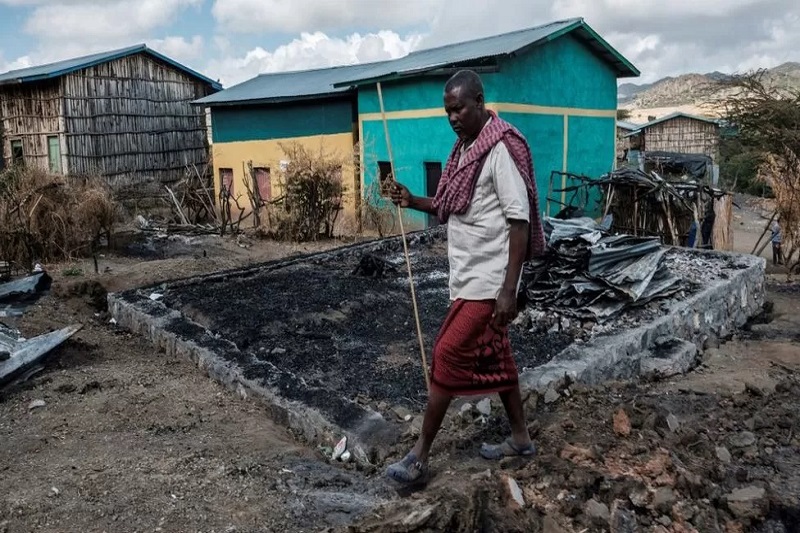According to local officials and researchers, at least 700 people have perished as a result of hunger in the northern Tigray area of Ethiopia in recent weeks following the cessation of food aid by the United States and the United Nations. After uncovering a plot to steal donated wheat that was intended for those in need, the United Nations and the United States first decided to postpone their food aid to the Tigray region in the month of March. Early in the month of June, they decided to suspend aid distribution throughout the entirety of Ethiopia, which will have a negative impact on around 20 million people who are in need of assistance.
Since the food aid was cut off in March, the Disaster Risk Management Commission of Tigray has recorded 728 deaths in the region that have been attributed to starvation. These deaths have occurred in three of the province’s seven zones. The panel’s chairman, Gebrehiwot Gebregziaher, claimed that district officials’ data collection efforts helped compile the data. “The circumstances in Tigray are quite precarious. Gebrehiwot reported that a great number of people were losing their lives as a result of the lack of food.
This number accounts for 350 deaths caused by starvation in the northwest zone of Tigray, which is home to thousands of people who were forced to flee their homes as a result of a conflict that raged in the region for two years and concluded in November. Midway through the month of March, United States aid personnel discovered adequate food supplies for 134,000 people for sale in a local market in Shire, which is the most populous town in the zone. Since the suspension of food aid began, academics at Mekele University, which is located in the capital of the region, have confirmed 165 deaths caused by hunger in seven camps for people who have been internally displaced in the state of Tigray. Over a hundred of these camps can be found in the region.
Related Posts
The deaths were reported to the researchers, who are conducting research on people who were displaced as a result of the recent fighting by the camp coordinators. One researcher, who spoke under the condition of anonymity for fear of being persecuted, stated that the majority of the victims were elderly people, children, and people who already had preexisting medical conditions. He established a direct connection between the aid cutoff and the deaths.
The number of children admitted to hospitals in Tigray for malnutrition increased by 196% between April 2022 and April 2023, according to a report from the United Nations released on June 14. Because of the recent war, 5.4 million out of Tigray’s total population of 6 million people are now dependent on food assistance. During the course of the battle, humanitarian supplies were pillaged by both sides, and access to help was blocked by the government, leading United Nations investigators to accuse the government of “using starvation as a method of warfare.” The resumption of relief deliveries to the region was made possible by the signing of a ceasefire agreement in November.
Aid workers have stated to The Associated Press, which was the first news organisation to publish the theft of food aid, that senior officials from the Ethiopian government were actively implicated. The United States is maintaining its stance that it will not resume providing food assistance until the Saudis are removed from the aid distribution process and stricter controls are implemented.
Although the Ethiopian government rejects as “propaganda” the notion that it is primarily responsible for the disappearance of aid in Tigray and other places, it has agreed to conduct a joint investigation with the United States, while the World Food Programme of the United Nations conducts its own investigation in a different manner. Even though they have stopped sending food, the United States and the World Food Programme (WFP) are still running nutrition programmes for women and children. However, a shortage of money has made things more difficult.

